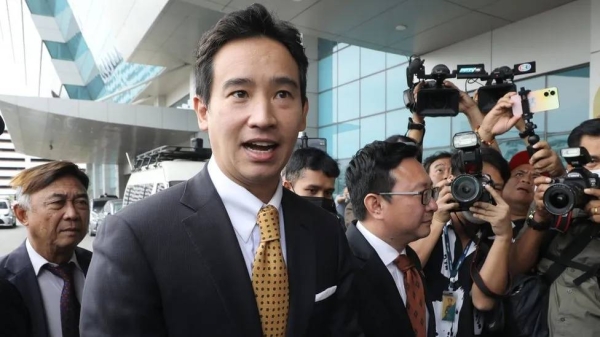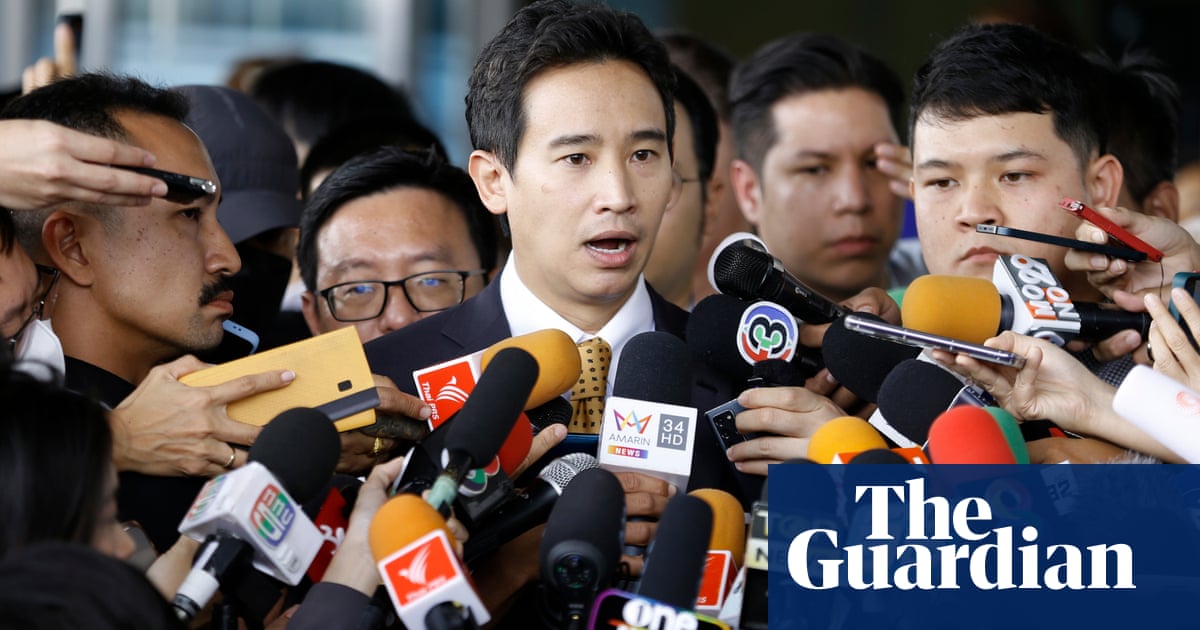
A Thai court has ordered the dissolution of the reformist party which won the most seats and votes in last year’s election - but was blocked from forming a government.
The ruling also banned Move Forward"s charismatic, young former leader Pita Limjaroenrat and 10 other senior figures from politics for 10 years.
The verdict from the Constitutional Court was expected, after its ruling in January that Move Forward’s campaign promise to change royal defamation laws was unconstitutional.
The court had said changes to the notoriously harsh lese majeste law was tantamount to calling for the destruction of the constitutional monarchy.
Wednesday"s verdict again serves as a stark reminder of how far unelected institutions are willing to go to preserve the power and status of the monarchy.
But the ruling does not mean an end to the reformist movement in Thai politics.
The surviving 142 Move Forward MPs are expected to transfer to another registered party and continue their role as the main opposition in parliament.
This is more or less a repeat of what happened in 2020 when the then Future Forward Party, which had also done unexpectedly well in an election, was also dissolved and transformed itself into the Move Forward Party.
That verdict four years ago ignited huge street protests, led by a new generation of student activists, which lasted for six months and voiced unprecedented demands for the monarchy to be made more accountable.
The authorities have since made extensive use of the lese majeste law to prosecute hundreds of protest leaders, including some Move Forward MPs.
The law has been widely criticized as stifling freedom of expression in Thailand, and in its manifesto Move Forward had proposed less severe punishments – jail sentences have been as high as 50 years – and a more rigorous process for filing charges.
Fears among reformists that Move Forward would not do as well in last year’s election as Future Forward had in 2019 proved unfounded.
The party defied expectations to outperform every other party and become the largest in parliament, revealing a strong yearning for change among Thai voters.
However, the military-appointed senate blocked Move Forward from forming a government over its lese majeste proposals, allowing an 11-party coalition of more conservative parties to take power instead.
With so many activists in jail, in exile or fighting criminal charges the large-scale protests seen back in 2020 are much less likely today.
Even Move Forward’s very mild proposals for a less severe lese majeste law have led to the party being stripped of its top leaders, just as its previous incarnation Future Forward was four years ago.
And anyone thinking of organizing protests similar to those four years ago will know that they too will be subjected to the tough penalties of lese majeste and several other sweeping laws in the Thai criminal code.
Thailand’s constitutional court, which has dissolved 33 parties since 2006, has long been the principle guardian of the conservative status quo - at its heart is the monarchy, protected by a politically-assertive military. Beyond that, unaccountable power is wielded by palace officials, senior judges, business tycoons, and military and police officers.
Under the military-drafted constitution the senate has a decisive role in the appointment of constitutional court judges, and over the composition of other influential extra-parliamentary bodies like the Election Commission and the National Anti-Corruption Commission.
The previous senate was appointed by the military junta which ruled Thailand from 2014 to 2019, and rewrote the political landscape in which parties have to operate today. It played a central role in blocking Move Forward from forming a government.
It was unclear what to expect from the new senate this year - but the peculiar election system allows only those seeking a seat in the senate to vote for the candidates in several rounds. That, and some murky backroom dealing, have produced a new 200-seat senate, most of whom appear to be linked to a party known for its uncompromising loyalty to the monarchy. — BBC












